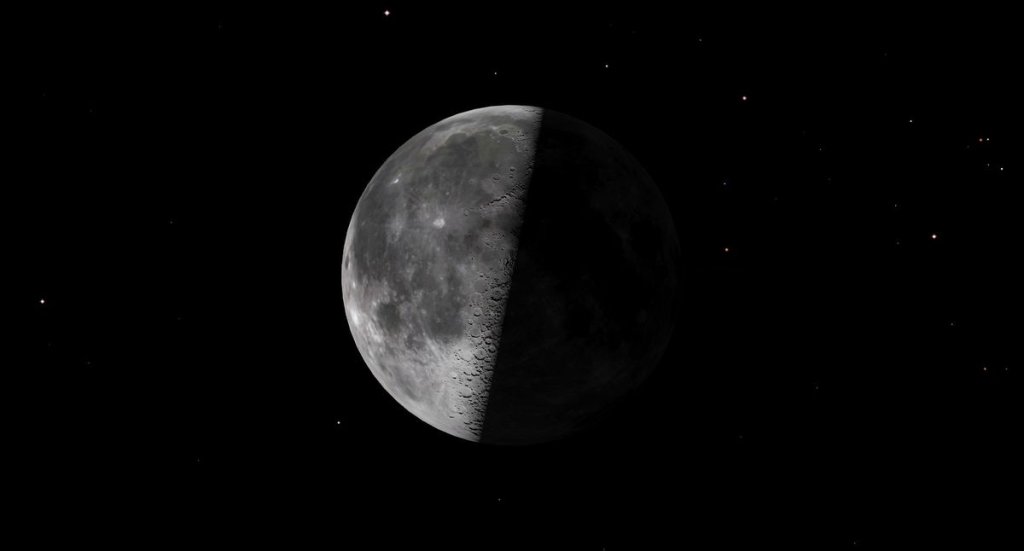The moon will be in its last quarter phase tonight, with the lunar face half-illuminated by the light of the sun.
During this lunar phase, the moon will appear in the Taurus constellation, offering skywatchers an opportunity to hunt for some of the Bull’s more prominent celestial objects.
From New York City, the last quarter moon will be visible shortly after it rises around 11 p.m. EDT (0300 GMT on Sept. 7). The half-lit moon will be visible all through the night and next morning until just before it disappears below the horizon at around 2:26 p.m. EDT (1826 GMT) on Thursday (Sept. 7), according to In the Sky.
Related: Full moon calendar 2023: When to see the next full moon
Want to see the moon or the stars of the Taurus constellation up close? We recommend the Celestron Astro Fi 102 as the top pick in our best beginner’s telescope guide.
The last quarter phase falls exactly halfway between the fully illuminated full moon and the completely dark new moon in the 29.5-day lunar cycle. Since the last full moon — the Blue Moon which rose on Aug. 30 — the illuminated portion of the lunar face has been receding, which astronomers call “waning.” The waning of the moon will be completed on Sept. 14 when the new moon rises, signaling the start of a new lunar cycle.
Between the full moon and the new moon, our planet’s natural satellite will also rise and set around an hour later each day. That means whereas the full moon rose with the setting sun and set with the rising sun, the new moon will rise and set with the sun, and it is thus absent for most of the night.
After the new moon, the moon will continue setting and rising an hour later each day, but the illuminated side of the lunar face will grow — called “waxing” by astronomers — leading to the next full moon, the Harvest Moon on Friday, Sept. 29.
Before the moon gets to that phase, however, it will once again reach a half-lit phase in its cycle — called the first quarter moon. This will be a mirror image of Wednesday’s last quarter moon, with the opposite side of the lunar face illuminated and the moon rising at around midday and setting at around midday rather than rising around midnight and setting around midday as it will mid-week this week.
Some of the observing targets in Taurus that the moon will be close to during the last quarter phase include the “Bull’s eye,” the star Aldebaran (or Alpha Tauri), a red giant star located around 65 light-years from Earth. “Aldebaran” means “follower” in Arabic and the star gets this name because it follows the famous star cluster the Pleiades, also known as the Seven Sisters, over the horizon.
On Wednesday, this bright star open cluster that contains thousands of hot blue stars will rise at around 10:08 p.m. EDT (0208 GMT) and will set the next day, according to In the Sky.
If you are hoping to catch a look at the moon alongside some of the stars of the Taurus constellation, our guide to best binoculars are a great place to find some wide-angle optics for on-the-go or at home.
But if you want to look at either one up close, check out our guides to the best telescopes or the best budget telescopes.
And you’re looking to snap photos of the moon or the night sky in general, check out our guide on how to photograph the moon, as well as our best cameras for astrophotography and best lenses for astrophotography.
Editor’s Note: If you snap an image of the last quarter moon and would like to share it with Space.com’s readers, send your photo(s), comments, and your name and location to spacephotos@space.com.

